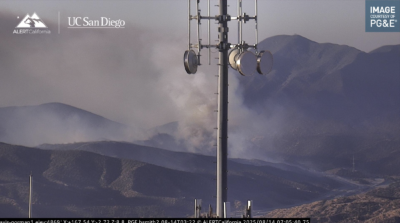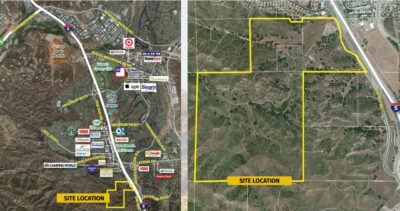Los Angeles County has officially thrown its support behind two bills authored by Assemblywoman Pilar Schiavo, D-Chatsworth, related to the ongoing odor situation at the Chiquita Canyon Landfill.
Both bills were backed after a motion submitted by 5th District Supervisor Kathryn Barger, who represents the Santa Clarita Valley and chairs the board. It was passed on Tuesday via the board’s consent calendar, which sees any items not held for discussion approved at once.
In a prepared statement, Barger said both bills, as well as legislation introduced by Rep. George Whitesides, D-Agua Dulce, at the federal level and a call by state Sen. Suzette Martinez Valladares, R-Acton, for more support from the state, “reflect a unified commitment across all levels of government to support affected communities.”
“Residents living near the Chiquita Canyon Landfill deserve help, and every avenue of relief should be explored,” Barger said in a prepared statement sent via email from her communications director, Helen Chavez. “I support both of Assemblymember Schiavo’s bills because they support those impacted by the landfill’s noxious odors and help set the stage for stronger oversight and accountability to prevent future incidents. These legislative efforts — alongside Los Angeles County’s ongoing litigation, Congressman Whitesides’ proposed tax relief act, and Senator Valladares’ advocacy letter to the California Attorney General — reflect a unified commitment across all levels of government to support affected communities.”
Whitesides’ bill, the Chiquita Canyon Tax Relief Act, seeks to ensure that relief payments to affected residents in Castaic, Val Verde and other areas near the landfill are not taxed on that assistance.
Valladares recently sent a letter to Attorney General Rob Bonta seeking to attach the state to the county’s lawsuit against Chiquita on behalf of residents, a move that was later applauded by Barger.
The county’s lawsuit, filed in December, seeks to address ongoing environmental and public health hazards caused by a persistent underground chemical reaction at the landfill, which has emitted noxious odors, hazardous gases, and toxic leachate into nearby communities for nearly two years, according to a release from Barger’s office.
Schiavo’s Assembly Bills 27 and 28 have both advanced to the Assembly’s Appropriations Committee, where the fiscal impacts of each bill will be weighed.
The former would seek to exclude gross income from any “Chiquita Canyon elevated temperature event payment amount received by a taxpayer.” The tax exemption would begin on Jan. 1, 2024, and end on Dec. 1, 2029, as the bill is currently written.
AB 28, also known as the Landfill Safety Act, is directed toward preventing a similar situation from occurring elsewhere. If signed into law, it would require landfill operators to: alert nearby residents and local enforcement when subsurface temperatures exceed 146 degrees for over 60 consecutive days; submit a corrective action plan within 14 days of high temperatures; trigger a multi-agency response team if temperatures continue rising, ensuring timely coordination and oversight; face penalties and potential loss of permits for failure to act.
The bill would also create the Landfill Subsurface Fire Mitigation Account so penalty funds can go to support impacted communities for things like relocation, home hardening, and other impacts from burning landfills.
In a prepared statement sent via text from Schiavo’s communications spokesman, Furkan Yalcin, Schiavo said she was encouraged that the county Board of Supervisors has supported her two important bills.
“They know the gravity of this public health crisis and how important it is to provide support to our community,” Schiavo said in the statement. “We’re encouraged these bills have continued to advance in the Legislature and look forward to them getting across the finish line to give tax and recovery relief our community needs as well as to hold the landfill accountable for the danger they put our community in every day.”
Residents living nearby in Val Verde and Castaic have reported deeply concerning health symptoms as a result of the subsurface reaction at the 639-acre Chiquita landfill and the odors emanating from it, including chronic nosebleeds, migraines, tremors, sight loss, brain fog, difficulty breathing and respiratory problems, Schiavo said during the Assembly’s Natural Resources Committee hearing for AB 28 on April 28.
The issues at the Chiquita landfill stem from a subsurface reaction that has yet to have a root cause identified by state officials despite a task force of county, state and federal officials citing daily efforts for years.
The Chiquita landfill and its parent company, Waste Connections, claimed in February the incident was improving, and subsequently ended its assistance program that had given out approximately $25 million over 12 months.
However, state officials reported in March that the landfill’s reaction area has reportedly doubled in size since those efforts began, with the entire canyon possibly threatened in the future.
Three significant issues have come about as a result of the reaction: a settling issue causing the landfill to collapse on itself at a rate of more than 1 foot per month; the production of leachate greater than 1 million gallons per month, which is causing storage and treatment challenges; and nauseating odors that have drawn more than 28,000 complaints.








